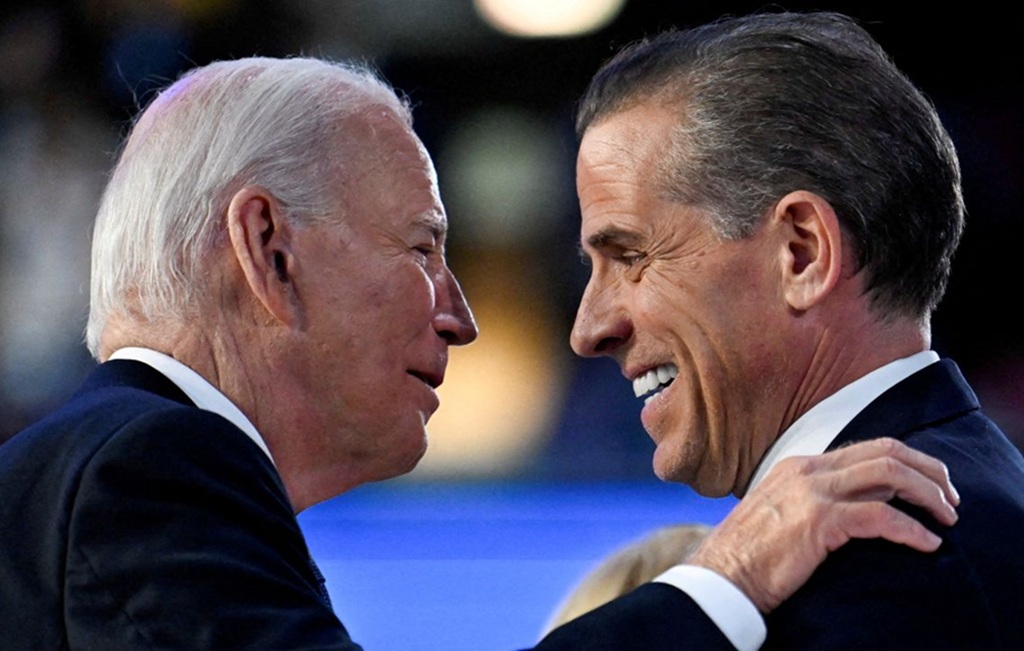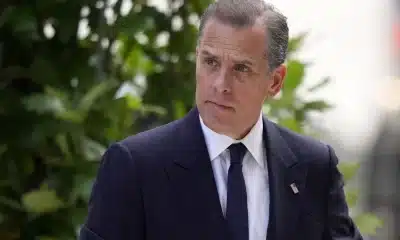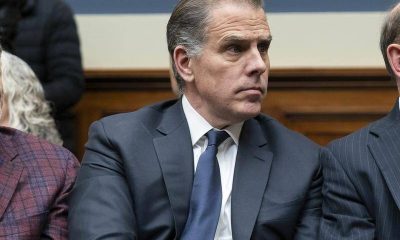Politics
Biden Pardoning Hunter Sparks Anger From Both Sides of the Isle

Both Republican and Democratic lawmakers have criticized President Joe Biden’s decision to pardon his son Hunter on Sunday after he was found guilty of federal felonies related to guns and taxes.
Before the convictions in the Delaware and California cases, President Biden had stated that he would not commute his son’s sentence or grant him a pardon. The pardon was granted just weeks before Hunter Biden was scheduled to be sentenced for his guilty plea to tax crimes and trial conviction in the gun case.
The president’s broad pardon includes any “offences against the United States which he has committed or may have committed or taken part in during the period from January 1, 2014 through December 1, 2024,” in addition to the tax and firearms offences committed by the younger Biden.
When he announced his decision to pardon his son, President Biden said prosecutors “treated Hunter differently” and accused Republicans of unjust treatment.
“From the day I took office, I said I would not interfere with the Justice Department’s decision-making, and I kept my word even as I have watched my son being selectively, and unfairly, prosecuted,” the statement added.
Biden’s Pardon “Self-Serving”
Lawmakers from both parties claimed that Biden’s choice to pardon his son was self-serving and would exacerbate the decline in American trust in democracy and the rule of law.
After Trump’s first term in office, Biden promised Americans he would restore standards and respect for the rule of law. However, he broke his public promise to Americans by using his position to assist his son.
Colorado’s Democratic governor, Jared Polis, swiftly expressed his disappointment and claimed that the action would “tarnish” the outgoing president’s reputation.
The leader of the Democratic Senate campaign arm, Senator Gary Peters of Michigan, referred to Mr. Biden’s decision to pardon his son as “wrong.”
In a statement, Mr. Peters stated that “a president’s family and allies shouldn’t get special treatment.” “This misuse of authority undermines confidence in our government and gives others the confidence to manipulate the law to their advantage.”
According to Democratic Representative Marie Gluesenkamp Perez of Washington, the president’s action provided evidence of a two-tiered legal system that treated the wealthy and politically influential differently from regular citizens.
Representative Jason Crow, a Democrat from Colorado, expressed disappointment with President Biden’s decision in an interview. He pledged that he wouldn’t do this, which, in my opinion, will make it more difficult for us to discuss preserving democracy in the future.
Unprecedented Pardon
The Republican chairs of congressional probes investigating Biden’s family, including Rep. James Comer, criticized the president’s pardon, claiming that the evidence against Hunter was “just the tip of the iceberg.”
Meanwhile, the office of Special Counsel David Weiss firmly resisted President Joe Biden’s defence of his son Hunter’s pardon. The president said his son was “selectively, and unfairly, prosecuted” when he announced the pardon on Sunday.
“There was and has never been any evidence of vindictive or selective prosecution in this case,” the filing from Weiss’s team stated. Hunter Biden had earlier this year brought up the issue of selective prosecution, but two courts had rejected it, the statement noted.
While acknowledging that the pardon ends the matter, the agency cautioned against formally dismissing it, which would have withdrawn the charges against Hunter Biden. Instead, the office seeks to close the matter.
When Trump becomes office, he won’t be able to reverse the pardon. Additionally, because of its broad scope, the Trump Justice Department will not be able to resume the lengthy criminal investigation of the president’s son, according to clemency-focused attorney Samuel Morison, who worked for 13 years in the Justice Department’s Office of the Pardon Attorney.
Related News:
Mark Zuckerberg Accuses Biden Administration of COVID-19 Censorship Pressure







































